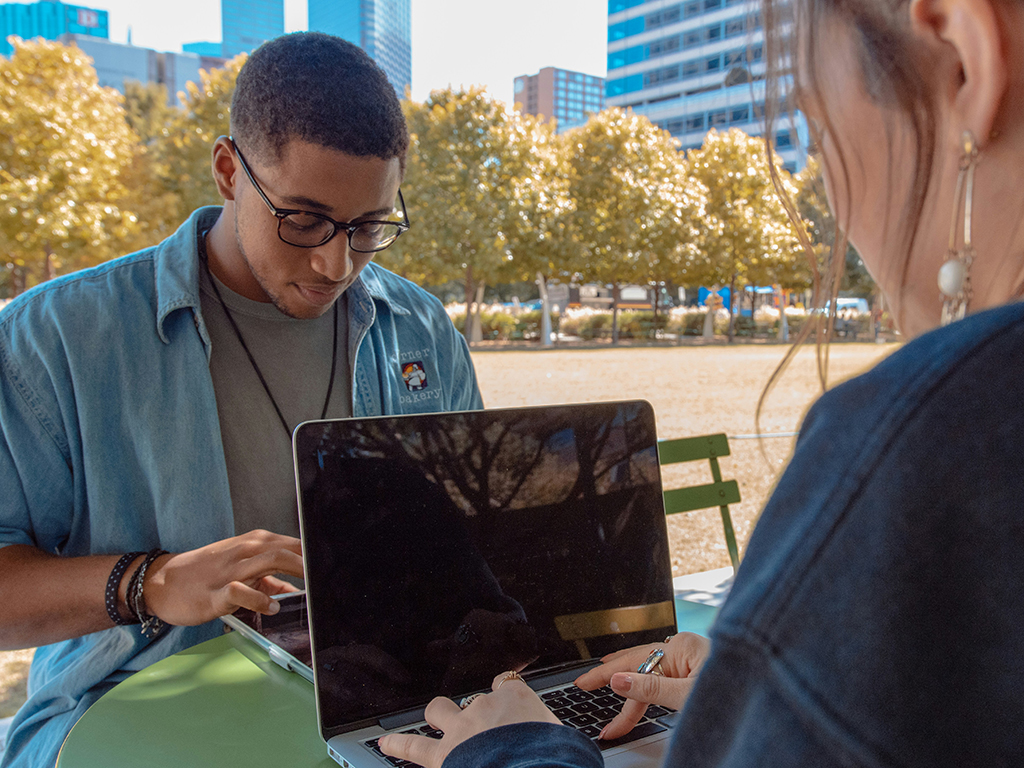What is Peer Mentorship?
Peer mentorship is a supportive relationship where students at similar stages in their academic journey help each other out. It’s different from traditional mentoring, where an experienced person guides a less experienced one. In peer mentorship, everyone is on a more equal footing, sharing tips, advice, and encouragement based on shared experiences.
Time Commitment
The time commitment for peer mentorship can be flexible. Usually, it involves meeting once a week or every other week for about an hour. However, you and your mentor can decide on the meeting schedule that best suits both of your needs. Consistency is key, but it doesn’t have to take up too much of your time.
How to Get a Peer Mentor
Finding a peer mentor is easier than you might think. Here’s how to start:
Know What You Want: Think about what you want to achieve through peer mentorship. This will help you find someone whose experiences match your goals.
Join Clubs and Groups: Get involved in clubs, study groups, or organizations related to your interests. These are great places to meet potential mentors.
Network: Attend campus events, workshops, and social gatherings. Don’t be afraid to introduce yourself and ask for advice.
Use Online Platforms: Websites and apps like LinkedIn, university forums, and social media groups can help you connect with peers who are also looking for mentorship opportunities.
Be Proactive: Reach out to classmates or upperclassmen who you think could be good mentors. A polite and clear message about your interest in peer mentorship can go a long way.
Examples of Peer Mentorship Opportunities
Academic Mentorship
If you’re undecided on a major, connecting with a peer mentor who has already chosen a major could be incredibly helpful. They can share insights on why they chose their major, what the coursework is like, and what career opportunities are available.

Internship Guidance
Finding a peer mentor who has already secured an internship in your desired field can be invaluable. They can offer advice on how to apply, what to expect during the interview process, and how to make the most of your internship experience.
Extracurricular Activities
Joining extracurricular activities can also provide opportunities for peer mentorship. For instance, a senior member of a club or organization can guide you on how to take on leadership roles, organize events, and balance extracurricular activities with academic responsibilities.
Benefits of Peer Mentorship
Study Skills and Exam Preparation
A peer mentor who excels in your courses can share effective study techniques, provide notes, and help you prepare for exams. They can also recommend resources and study groups that have helped them succeed.
Career Planning
A peer mentor with a clear career path can offer advice on setting career goals, building a resume, and networking with professionals in your field. They can also share their experiences with job searches and interviews, giving you a better understanding of what to expect.
Enhanced Learning and Knowledge Sharing
Peer mentorship is a fantastic way to boost your learning. By sharing notes, study tips, and insights, both mentors and mentees can deepen their understanding of subjects and improve their academic performance. It’s like having a study buddy who’s invested in your success.
Improved Communication Skills
Being part of a peer mentorship program helps you develop better communication skills. Mentors learn to explain concepts clearly, while mentees practice active listening and asking good questions. These skills are not only useful in college but also in your future career.
Increased Confidence and Self-Esteem
Having a peer mentor can make you feel more confident and less stressed. Knowing that someone who’s been in your shoes is there to support you can be really reassuring. Mentors also gain confidence from helping others and seeing their mentees succeed.
Stronger Network and Community
Peer mentorship helps you build a strong support network on campus. You’ll make new friends and connections, creating a sense of community. These relationships can last beyond college and help you in your future career.
Personal and Professional Development
Both mentors and mentees grow personally and professionally through peer mentorship. You’ll get advice on how to achieve your goals, and mentors will develop leadership and coaching skills. This mutual growth is beneficial for your future job prospects and personal fulfillment.
Motivation and Accountability
A peer mentor can be a great motivator. They can help you set goals and stay on track to achieve them. Knowing that someone is there to support you and hold you accountable can keep you focused and motivated.
Adaptable and Flexible Learning
Peer mentorship is more adaptable and flexible than traditional mentoring. Since mentors and mentees are at similar stages, they understand each other’s challenges better. This makes the mentoring process more relatable and responsive to your needs.
Peer mentorship offers numerous benefits for college students, from better learning and improved communication skills to increased confidence and stronger networks. By embracing peer mentorship, you can support each other’s growth and success, making your college experience more rewarding and enjoyable.
